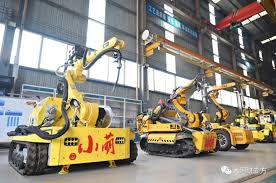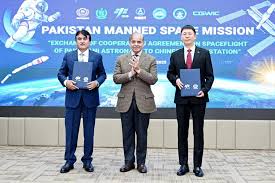PM confident of winning war against mafias, ensuring rule of law

Dera Ismail Khan: Prime Minister Imran Khan Thursday expressed his confidence that the present government will win the war against mafias and ensure the supremacy of law.
“If we have to become a great nation, which was the concept [behind Pakistan’s creation], we have to ensure the rule of law,” Imran Khan said while addressing Kissan Convention here.
The Prime Minister, however, added that masses will also have to change their attitudes to become a great nation.
”It is shameful that some people sitting abroad, living in the properties worth billions of rupees cannot show even a receipt of how they got that money?, and making speeches from there,” he remarked.
The Prime Minister said that big mafias did not want the rule of law in Pakistan because they benefit from the corrupt system and just wanted NRO (National Reconciliation Ordinance). “Then how this country will move forward?” he questioned.
The Prime Minister said when he often referred to the State of Madina and its principles, it was not only meant for any political gains. “I don’t use the name of Islam for personal benefit or for vote. It is the part of my faith,” he remarked.
Imran Khan said being a student of history he had studied a lot about Islam, the life of our Prophet Peace Be Upon Him and the principles of the State of Madina.
He said there was need to know and understand the principles adopted by the people in the State of Madina which led the fall of two super powers of that era, enabling the Arabs to lead the world in few years.
“If we want to become an honorable nation, we have to take care of our self-respect without fear from anyone except Allah Almighty,” Imran Khan remarked.
The Prime Minister said that the State of Madina brought a revolution in the lives of people by enforcing the rule of law and ensuring justice.
Prime Minister Imran Khan said contrary to Pakistan, where hours-long meetings are held before the elections to discuss how to check rigging, people in the West and European poll their votes without fear of any such practice.
Expressing his concern about fast growing population in Pakistan, which had reached from less than 40 million in 1947 to around 220 million at present, he said this growth could check through enhanced education levels and primary healthcare facilities.
The Prime Minister said despite having much fertile lands and bumper wheat crops the country had to import 4 million tons of wheat last year and was again expected to import the vital commodity this year as well.
He said as the country has to import basic commodities like ghee, pulses etc. to cater to the needs of growing population, there was a need to make plans to tackle such challenges.
The Prime Minister also attributed enhanced imports of commodities as one of the major causes of inflation and said the commodity prices had increased worldwide.
He said Pakistan has to tackle this challenge by promoting its agricultural sector, research and increasing its cultivation areas and yields of various crops through modern techniques of farming.
The Prime Minister said that Gomal Zam Dam will make over 200,000 acres of land in the area cultivable.
He said that the present government had started constructing dams in the country after 50 years, and 10 dams will be constructed during the next 10 years.
Highlighting the importance of research, seed development, modern technology and efficient use of water in agriculture sector, the Prime Minister said that the per-acre yield of various crops in India was higher than that of Pakistan.
He said that the better utilization of agricultural lands in the areas like Waziristan and the cultivation of cash crops in Khyber Paktoonkhwa and Balochistabn will bring about a revolution in the lives of people.
Imran Khan said many areas in Pakistan were very good for the cultivation of avocado, a vegetable full of vitamins, adding, he himself had done the experience of growing this expensive vegetable at home.
He said it was after the4 1960s that a government was focusing on the promotion of agriculture sector. “We don’t think about next elections but about the next generation,” he remarked.
The Prime Minister said that by cultivating and growing the cash crops like pulses, Palm Oil, Soybean and Olives, Pakistan cannot only fulfill its domestic needs but can also export the basic commodities.
Expressing his delight over the establishment of agricultural university in the area, Imran Khan said a faculty of agriculture research was also being set up at NAMAL University in Miawali with the cooperation of Holland.
He said that China was also cooperating with Pakistan for agriculture development and providing modern technology under the China Pakistan Economic Corridor (CPEC).
The Prime Minister said that as the cows in China produced 3 to 4 times more milk than in Pakistan, use of modern techniques can help enhance the country’s milk production.
He said that owing to the government policies and increasing support prices of various crops, the country’s farming community got reasonable return of their produce and prospered.
In the past, the growers were blackmailed by mafias like the sugar mafia and were not given the due prices, he said, adding, but as the present government increased the support prices of wheat, sugarcane, rice and maize, there was record production of the commodity in the country.
The Prime Minister on this occasion also announced the bifurcation of South Waziristan, which was home to Mehsood and Wazir tribes, into two districts for the facilitation of local people.
He, however, added that it would the implemented after land disputes in the areas were resolved.
Earlier, the Prime Minister formally launched Kissan Card scheme and inaugurated construction of the building of Agriculture University D.I.Khan, Gomal Zam Dam Command Area project and Agricultural Research Stations.
Under the first phase of Kissan Card scheme farmers database would be improved and targeted subsidies for agricultural machinery and inputs would be provided to the farmers.
In the second phase of the scheme the farmers would be provided with different facilities including the provision of interest free/ low markup loans, crop insurance and any other financial assistance in respect of natural calamities.





